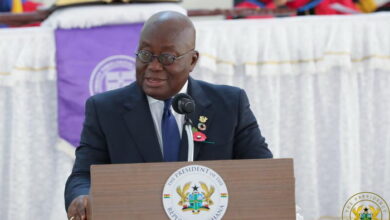14 CSOs Sue ECG and Fidelity Bank Over Procurement Irregularities
: Several executives from Fidelity Bank hold positions on ECG's Board, raising concerns about potential conflicts of interest

- 14 CSOs have filed a legal case against ECG and Fidelity Bank
- The lawsuit focuses on ECG's appointment of Fidelity Bank as its sole account custodian
- The CSOs argue that ECG's procurement irregularities have contributed to Ghana's economic challenges
A coalition of 14 Civil Society Organizations (CSOs) has filed a lawsuit against the Electricity Company of Ghana (ECG) and Fidelity Bank Ghana Limited, demanding clarity on ECG’s responsibilities under the Public Procurement Act (2003).
This legal move follows allegations of procurement irregularities and conflicts of interest linked to politically connected executives.
Assisted by the AudreyGrey law firm, the coalition—comprising organizations like the Africa Centre for Energy Policy (ACEP), the Institute for Liberty and Policy Innovation (ILAPI), and the Centre for Democratic Development (CDD) contends that ECG’s decision to appoint Fidelity Bank as its exclusive account custodian for significant forex transactions should have adhered to procurement regulations aimed at promoting transparency and accountability.
The lawsuit also raises concerns about potential conflicts of interest, given that multiple Fidelity Bank executives sit on ECG’s Board, which complicates the decision-making process.
These issues arise amid ongoing procurement scandals at ECG, highlighted by Auditor General reports detailing various irregularities, as well as recent scrutiny over smart meter acquisitions.
The coalition argues that ECG’s procurement failures exacerbate the energy sector’s financial troubles, which the International Monetary Fund (IMF) recently identified as a major threat to Ghana’s economic stability.
The organizations emphasize the need for thorough examination of ECG’s practices to avoid a recurrence of previous power crises that have negatively impacted the nation. Additionally, ACEP is investigating ECG’s multimillion-dollar procurement of a mobile application, further questioning the company’s operational integrity.
The coalition warns that without effective oversight and compliance with procurement laws, ECG’s actions will likely worsen fiscal challenges, including inflation and currency depreciation linked to unproductive energy sector debt.
In response, ECG attributes its financial difficulties to substantial foreign exchange losses, claiming these losses reach tens of millions of dollars.
The coalition insists that enhanced transparency in these transactions is crucial for safeguarding Ghana’s economic future.
Below are the 14 CSOs
1. Africa Center for Energy Policy (ACEP)
2. Democratic Credentials Network (DCN)
4. Institute for Liberty And Policy Innovation (ILAPI)
5. Africa Centre for Entrepreneurship and Youth Empowerment (ACEYE)
6. Renel Ghana Foundation (RENEL)
7. Grassroot Mobilizers Foundation (GMF)
8. Centre for Democratic Development (CDD)
9. IMANI Centre for Policy and Education (IMANI)
10. Institute of Energy Studies (IES)
11. Community Focus Foundation Ghana (CFF-Ghana)
12. ODEKRO PMO Foundation (ODEKRO)
13. iWatch Africa (iWatch)
14. Center for Extractives & Development (CEDA)





